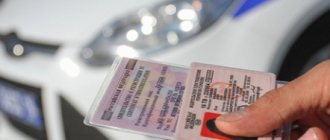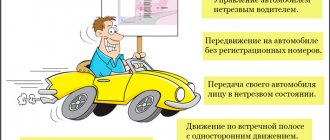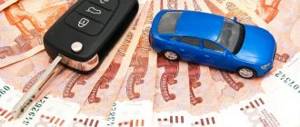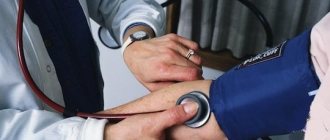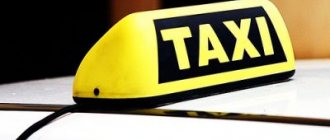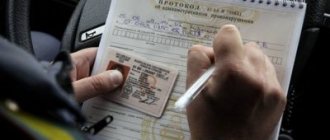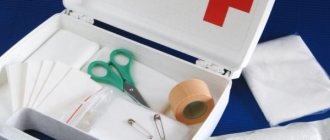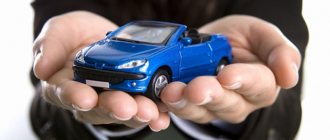Losing a driver's license in modern realities does not seem such a difficult task. Confiscation of rights by court decision occurs not only due to driving while under the influence of alcohol or drugs, but also for refusal to undergo a medical examination at the request of a traffic police inspector.
Deprivation of rights also occurs for many gross violations of the Traffic Rules - driving into the oncoming lane, driving through a red traffic light, driving without license plates, using illegal technical devices, significantly exceeding the speed limit, and much more. What is the punishment for driving a car without a license if the driver has already been deprived of it once and the period of deprivation has not yet expired? Should I ignore the court decision and drive without a license?
Responsibility for driving without a license if they are deprived
The answer to the question of what liability a driver faces for driving a vehicle without a license (in case of deprivation) is found in Part 2 of Art. 12.7 Code of Administrative Offenses of the Russian Federation:
- an administrative fine in the amount of 30 thousand rubles;
- administrative arrest for up to 15 days;
- compulsory work for a period of 100 to 200 hours.
Driving without a license, when the driver has never received one, will result in a fine of 5 to 15 thousand rubles (Part 1 of Article 12.7 of the Administrative Code). If the owner of a car transfers the right to drive it to a person who obviously does not have a license or who was previously deprived of this right, then he will have to pay a fixed fine of 30 thousand rubles (Part 3 of Article 12.7 of the Administrative Code).
If a driver deprived of his license is caught driving a car in 2018, his vehicle will be forcibly detained and sent to a parking lot. The same will happen if the driver has never had a license.
Removal from driving a vehicle and sending the car to an impound lot are always fraught with additional financial costs for the offender, in addition to paying the fine. We are talking about paying for tow truck services and vehicle idle time in a temporary parking lot.
This can only be avoided if another person who has a driver’s license and is included in the MTPL insurance (friend, relative) quickly arrives at the place of detention. Then this person will be able to drive the car to the garage, bypassing the unpleasant procedure of evacuation to the impound lot (Part 1.1 of Article 27.13 of the Administrative Code).
If a driver is caught driving without a license after being revoked, it would not be a good idea to try to deceive the traffic inspector and tell him that the license was lost, stolen, or forgotten at home or at work. It is now very easy to establish the fact of deprivation of rights using the traffic police online databases, to which almost all State Traffic Inspectorate employees have access. The deception will quickly be revealed and will only aggravate the punishment.
Is it possible to drive a vehicle without a driver's license?
The Administrative Code of the Russian Federation provides for responsibility for driving transport after deprivation of rights (you can find out why and how the procedure for depriving a driving license, who has such powers, is here). For driving a car without a driver's license, the driver can be punished with arrest for up to 15 days . If it is impossible to apply such a measure of punishment to a citizen (in the case of minors, pregnant women, etc.), penalties are imposed in the amount of 5,000 rubles (read about the consequences of driving without a license after deprivation of them here).
But it turns out that driving without a license is still possible. There is a certain period of time between the unpleasant conversation with the inspector and the confiscation of the driver’s license by the court. Sometimes, this time can even be very long if the court hearing, for example, is held in another region.
The State Traffic Inspectorate employee himself does not have the right to liquidate a driver’s license . The inspector draws up a protocol stating that an administrative offense has been committed, a driver's license is attached to it, and a temporary permit to drive a vehicle is issued. Before the court hearing. Next, the court determines: to deprive the driver of his license for a certain period or not to deprive him.
Until a legal dispute takes place, and this period takes up to 2 months, the driver can legally remain behind the wheel.
In the best case scenario, if the offender hires a lawyer who convinces the judge that his client does not deserve such a harsh punishment, the driver will be able to continue to drive his car until he repeats the traffic violation. Unless the driver, of course, draws the appropriate conclusions.
In no other cases is it possible to drive a vehicle without a license; this can lead to more serious consequences.
If the period for confiscation of the driving license has expired
If a citizen has not yet received his driver’s license back, then he cannot drive . To do this, you need not only to return the legal right to drive transport, but also to have a document confirming this right. A driver's license is such a document. So, if the sentence of a negligent driver has expired, this is not enough. You must pick up your license and only then sit in the driver’s seat.
It is important to understand whether the driver has legal restrictions or does not have them; when there are no documents on hand, it is prohibited to drive the car. This rule is enshrined in law (Administrative Code Art. 12.3).
The punishment for such an offense is small. If the period for confiscation of the driving license has expired, the driver will be warned or fined 500 rubles .
The same punishment follows for the lack of car registration documents.
Fine, arrest or forced labor?
Administrative arrest for driving without a license after its withdrawal is the most severe disciplinary measure. Therefore, this measure is prescribed in exceptional cases and in relation to only the most persistent violators of the Traffic Rules. In accordance with part 2 of Art. 3.9 of the Code of Administrative Offenses of the Russian Federation, administrative arrest in 2021 is not applicable to the following categories of citizens:
- pregnant women and women with children under 14 years of age;
- minor citizens;
- disabled people of the first two groups;
- military personnel and citizens called up for military training;
- persons with special ranks of employees of the Investigative Committee, Department of Internal Affairs, institutions of the penal system, national guard troops, as well as the fire service and various customs authorities.
The severity of liability for driving without a license largely depends on the presence of mitigating or aggravating circumstances. It’s one thing when a driver is accidentally caught driving a car without a license (as part of a routine document check). And it’s another matter if this happened as a result of an investigation into the circumstances of an accident that occurred due to the fault of such a driver. In the latter case, he will face punishment under two articles at once - for driving without documents and for violating traffic rules.
The period of administrative arrest also includes the period of administrative detention, which can last from 3 to 48 hours. The period of detention is counted either from the moment the driver is delivered to the traffic police department, or from the moment he sobers up (if he was detained while intoxicated).
Tricks that can be used when driving without a license
Initially, you need to deal with situations where deprivation of rights is used as a punishment for various violations.
These cases include:
- using a vehicle without signs, and punishment is used even if there are signs, but they are attached incorrectly;
- use of red light for headlights;
- driving a car in the opposite direction on a one-way road;
- oncoming traffic on tram tracks;
- speeding, and it is important that the speed differs by 60 km/h from the permitted value;
- providing a car to a person who is drunk or does not have a driver’s license;
- driving a car while drunk or under the influence of drugs;
What is the penalty for driving while intoxicated? How long does it take to remove alcohol from the blood? Read the link.
- using alcohol or drugs after an accident;
- refusal to undergo examination after an accident.
What are the main causes of road accidents? Read preventive measures here.
The Code of Administrative Offenses has quite a few articles related to situations where drivers may be deprived of their rights. In Art. 12.7 provides information that this method of punishment is certainly used in situations:
- the driver uses the car while intoxicated;
- refusal of examination;
- serious traffic violation associated with driving in the oncoming lane or significantly exceeding the speed limit.
Important! If a person has already been deprived of his license, then he cannot use a car, and if he still gets behind the wheel, this will lead to the accrual of a significant fine or an increase in the period of deprivation of documents.
If a driver is stopped by a traffic police officer while driving with a fake driver’s license, he will face punishment for driving with a fake license, corresponding to Article 12.7 of Part Two of the Code of Administrative Offenses of the Russian Federation - administrative liability. In addition, criminal liability is imposed as specified in the Criminal Code (Article 327, Part Three). For driving without a license and presenting false documents, the driver is subject to:
- a fine of 80 thousand rubles;
or
- arrest for a period of 6 months;
or
- correctional labor for 480 hours.
The solution is not to drive after being deprived of your driving license.
In addition, if the transfer of control to such a person is proven, then the person who transferred control will face a fine in the same amount - 30 thousand rubles - under Part 3 of the same article.
Apart from a fine or administrative arrest or mandatory work, a sober driver does not face anything - deprivation of rights for driving without a license is not provided for in this case. But it should be borne in mind that in order to be charged under this article, the driver must already have been deprived of his license - that is, the decision to impose a penalty on deprivation of his license (for the first time) must be made by a judge. But more on that below.
Let's move on!
The next most severe punishment is faced by a deprived person who is caught for the second (or third, and so on) time while intoxicated, but for the first time deprived not for intoxication, but, for example, for driving into the oncoming lane in violation of traffic rules, for driving against the direction of one-way road or for repeatedly running a red traffic light, etc.
For example, on January 1, 2021, driver Ivanov was deprived of his license for driving into the oncoming lane in violation of traffic rules for a period of six months. But Ivanov was caught again - already drunk - on May 1, 2021 - that is, being deprived of his rights.
As we see from the article, there is a category of citizens who cannot be arrested, and instead they are fined. But what if citizen Ivanov belongs to this category?! An exhaustive list of persons who cannot be arrested is regulated by Article 3.9 of the Administrative Code, and these include:
- pregnant women;
- women with children under 14 years of age;
- persons under the age of 18;
- disabled people of groups I and II
- military personnel;
- citizens called up for military training;
- employees with special ranks of the Investigative Committee of the Russian Federation, the Department of Internal Affairs, bodies and institutions of the penal system, the State Fire Service, authorities for control of the circulation of narcotic drugs and psychotropic substances and customs authorities.
Above, you probably noticed in the quote from Article 12.8 the condition that the sanction is applied only if the actions of the violator do not contain elements of a criminal offense. We are talking about the recently introduced article 264.1 of the Criminal Code, which provides for liability for driving without a license after deprivation under conditions where the driver was for the first time deprived of a license for drunkenness or for refusing an examination, and, having already been deprived, was caught drunk.
Well, a criminal record is an additional “bonus” to this type of punishment.
Here the term “subject to administrative punishment” should be clearly noted. And this is not just the fact that a person is deprived of the right to control. In fact, this is the period from the moment the resolution comes into force until the expiration of one year after the execution of the punishment. And the date of execution of the punishment in the case of deprivation of rights is the date the deprivation ends.
Every driver must know the traffic rules and bear responsibility if they are violated. But there are situations when there is an urgent need to make an important trip during the absence of a driver. For these cases, there are some tricks on how to drive without a license after deprivation:
- Obtaining a certificate in another region. In this case, it is important not to mention that the old VU was taken away.
- Fake documents. A very controversial issue that can lead to quite severe punishment. There is also a possibility of simply parting with the money by giving it to a scammer.
- Driving without documents. This option may also result in penalties if stopped by an inspector.
Each of the methods, of course, can help out, but all of them are illegal and, if detected, promise big problems, both within the Administrative and Criminal Codes. Therefore, it is better to think several times before resorting to them. Yes, the likelihood of their detection is not so high, and the systems for checking traffic police officers do not always work. But there is always a risk of being detained.
License suspended by bailiffs
In some cases, for driving a vehicle without a license, if the driver has been deprived of them, he faces slightly different liability, outside the scope of Part 2 of Art. 12.7 Code of Administrative Offences. We are talking about driving without a driving license, if their action was suspended by bailiffs as part of enforcement proceedings (for debts) under Article 17.17 of the Code of Administrative Offenses of the Russian Federation. Ignoring restrictions on the use of rights in this case threatens:
- compulsory work for up to 50 hours;
- deprivation of driver's license for up to 1 year.
Compulsory work means free, socially useful activity that is performed during free time from main work (or other activities). The duration of such work cannot exceed 4 hours daily. Compulsory labor as a punishment cannot be assigned to the following categories of citizens (Part 3 of Article 3.13 of the Code of Administrative Offenses of the Russian Federation):
- pregnant women and women with children under 14 years of age;
- disabled people of the first two groups;
- military personnel and citizens attending military training;
- employees of many law enforcement agencies.
What should a driver do after losing his license?
To return documents, the car owner can perform various actions:
- if the documents were lost, they can be easily restored within two months, and during this period a temporary license will be issued at the registration point;
How can I quickly change permissions? What documents are needed? Where can I sign up for an exchange? Answers to all questions here.
- if the driver was deprived of the opportunity to use the car due to various serious violations, then he must wait until the end of this punishment.
There is no single law in Russian legislation on the deprivation of a driver’s license. This issue is regulated by various legislative norms.
- The main regulatory provisions that describe the reasons for deprivation of the right to drive vehicles are presented in Chapter 12 of the Code of Administrative Offenses of the Russian Federation. This part contains only those administrative offenses that relate to traffic rules and the operation of transport.
- Temporary restrictions on the use of rights are contained in the Law “On Enforcement Proceedings”, or more precisely in Article 67.1. It provides for “deprivation of a driver’s license” carried out by bailiffs for late payment of alimony and similar payments.
- Another legislative act that is applied in this matter is the Criminal Code of the Russian Federation. 264.1. Article of this regulatory provision states that persons who drive a mechanical vehicle for the second time while intoxicated, or allow another person in a similar state to get behind the wheel, are subject to criminal penalties.
- Controversial issues related to the deprivation of a motorist's rights, which arise in the courts when applying the part of the Administrative Code of the Russian Federation on traffic violations, are also resolved using the rules of law contained in the Resolutions of the Supreme Court of the Russian Federation.
The whole point is that the decision to confiscate is made by the court, and the certificate is confiscated for a set period. But until the trial takes place, the driver can drive a vehicle using his license. That is, the driver will have the document until a court decision comes into force. You cannot drive a car after a court decision has been made to deprive you of your license.
Deprivation of a driver's license may be due to driving while intoxicated and due to other traffic violations. In the first case, identification of the fact and subsequent proof before the court guarantees unconditional deprivation, as a rule, for the maximum permissible period. At the same time, already at the moment of detection of a violation, the inspector draws up a protocol and collects evidence.
If the reason for the deprivation of rights was another gross violation of traffic rules, for which the deprivation of a driver’s license is possible, the offender may continue to drive the car for some time. This opportunity to continue driving for some time is due to the fact that the basis for deprivation of rights is a court decision that has entered into force. The period for entry into force of a court decision to impose an administrative penalty or sentence is 10 days.
If the court decides to deprive the driver of his license, this does not mean that after 10 days such a decision will come into force. In case of disagreement with the legality of the decision made and the type of punishment applied, the person has the right to file a complaint with a higher court. Until a higher court considers the case on its merits, the driver has the right to drive with his or her driver’s license.
The decision made by a higher court comes into force at the time of announcement and, accordingly, from that moment is subject to mandatory execution. Even a subsequent appeal does not give the right to continue driving, and the driver’s license must be submitted to the responsible department of the traffic police.
The countdown of the period for which a person is deprived of a driver’s license begins from the moment the court decision comes into force. From this day, for the next three days, the person must submit to the traffic police his documents for the right to drive a vehicle, or report their loss, if any. If a person deliberately avoids fulfilling such an obligation and does not submit documents, the running of the period is actually suspended and begins from the moment the rights are surrendered or confiscated by the body that is enforcing the court decision.
Deprivation of a driver's license is the most extreme degree of punishment for a driver for violating traffic rules on the roadway. The list of what needs to be done so that the traffic police inspector can immediately seize documents on the spot or draw up a protocol that will entail this procedure in court in the future is regulated by Ch. 12 Code of Administrative Offenses of the Russian Federation. A driver’s license can be taken away if the following violations are committed:
- The car is equipped with a fake license plate and the driver knows about it - for a period of 6-12 months.
- The vehicle has lighting devices of an unacceptable color installed on the front for a period of 6-12 months.
- The driver drives a vehicle equipped with prohibited light or sound signaling devices - for a period of 12-18 months. If a traffic police inspector stops such a car, the period may increase to two years.
- The vehicle is equipped with distinctive signs of automotive special services on its external surfaces - for a period of 12-18 months.
Important! Repeated violations, driving while intoxicated or under the influence of alcohol, transferring a car to persons without a driving license, transporting dangerous substances, obstructing the movement of special services vehicles, etc. violations may also serve as grounds for losing a document (about the consequences of repeated deprivation of rights for drunkenness and other violations, read
We invite you to read: After entering into an inheritance, a will was found
Here
).
After the driver's license has been confiscated, it is strictly forbidden to drive until he is reinstated in the right to participate in road traffic (find out everything about restoring your driver's license here, and what you face for driving without a license after it has been revoked is discussed in this article). Ignoring this leads to appropriate punishment, including repeated deprivation of the driver’s license. It should be understood that such a measure will not “overlay” the one already taken, but will become a precedent for extending the period of withdrawal of the certificate.
Without additional penalties, licenses are revoked only in cases where the driver:
- Did not commit any related violations.
- Didn't harm anyone's life.
- Didn't harm anyone's health, etc.
When the driver's license is repeatedly confiscated, from the moment the violation is recorded by the traffic police inspector, the validity of the new restrictions is counted.
The inspector does not have the right to pick up the document directly at the scene of the incident; such a decision remains only with the court. The traffic policeman only draws up a protocol describing the violations, which in court will be considered a reason for confiscation of the driving license.
Administrative liability for driving a vehicle without a driver’s license occurs in situations described in Art. 12.8 Code of Administrative Offenses of the Russian Federation. In any case, the strictest measures are applied to those drivers who allow themselves not only to drive without documents, but also to be drunk.
The size and specifics of the collection of fines will depend only on the specific situation and the accompanying consequences of such driving.
Deprivation of a driver's license may occur by court decision. At the time of violation, the traffic police inspector draws up a protocol, which is sent to the court. The filing and initiation of an administrative case must occur within 1 day. The withdrawal of driving rights is considered official only after a trial and the issuance of a corresponding prohibitory decision.
You can appeal the deprivation within the first 10 days after the decision is made. After this time has expired (if there was an appeal), you need to hand over the driving license to the traffic police. For driving a car after this period, you may be punished for driving without a license after deprivation.
Driving without a license while drunk
More serious responsibility is imposed on drivers who decide to drive a car while intoxicated , if they have previously been deprived of their rights for gross administrative offenses (Part 3 of Article 12.8 of the Code of Administrative Offenses of the Russian Federation). Under this article, punishment is imposed only if the driver’s actions did not result in a criminal offense :
- administrative arrest from 10 to 15 days;
- an administrative fine in the amount of 30 thousand rubles (if the driver cannot be arrested).
An arrest for a period of 10 to 15 days or a fine awaits those drivers who are caught driving a car without a license and at the same time refused to undergo a medical examination for alcohol intoxication at the request of a traffic police inspector (Part 2 of Article 12.26 of the Administrative Code).
Procedure for deprivation, appeal and return of rights
In order to comply with the full legality of punishing negligent drivers, you must act within the legal framework. How does the confiscation of a driver's license and subsequent deprivation occur?
Let's take the case of driving while intoxicated as an example.
- A traffic police officer stops the car and, in the presence of witnesses (two witnesses), can check the driver using a Breathalyzer type device. In other words, “breathe into the tube.”
- If the device shows a positive test, but the driver claims that he is innocent, then he can challenge the result and request a drug examination. In this case, the car is detained, the driver, together with the inspector, goes to the nearest medical facility, where his blood or urine is taken for analysis.
- If the test is positive, the car is subject to confiscation, and an administrative case is opened against its owner, in which the issue of deprivation of the license will be considered.
- On the spot, the driver will be issued a temporary document, and the license will be confiscated until the court makes a decision. With this document the driver will be able to drive. After the decision is made, the driver will either be deprived of his license for a certain period, or if the outcome is positive, the license will be returned to the owner.
- You can challenge a court decision on the basis of the protocol, but on the spot, a certificate from a drug treatment facility is sufficient. The appeal period is 10 days.
If the driver does not plead guilty even after he has been deprived of his license by a court decision, then it is very important to know how to carry out the procedure for appealing this decision as easily as possible. After all, the question of how to travel further is decided here, especially if it is related to work.
If there was a situation where a traffic police inspector violated the procedure, then for this purpose evidence must be collected about testing the driver without witnesses, as well as documents such as:
- violation protocol;
- medical examination report;
- vehicle seizure report;
- protocol on sending the driver to a drug treatment facility for testing.
Article 51 of the Constitution of the Russian Federation gives any citizen the right not to give evidence against himself, therefore, if the corresponding column is not signed in the protocol, then he can challenge in court the fact of driving a vehicle while intoxicated.
The reason for an appeal in court may be the situation if the traffic police inspector did not explain to the driver his rights, and if the judge violated the procedural order when considering the case. As a rule, a good lawyer can present all the circumstances of the case to the benefit of the driver, as a result of which a superior will rule that your license was illegally deprived of you, and you will continue to drive.
If you are nevertheless deprived of your driver's license, then it is possible to return it only after passing the theoretical exam. At the end of your sentence, you will be given a date to take the test at the traffic police, and if you pass it successfully, you will be able to get your license back on the same day. If you were deprived of your license for drunkenness, then in addition to the exam, you must present a medical certificate.
Criminal liability
The driver's liability under Article 264.1 of the Criminal Code of the Russian Federation occurs when the driver was caught driving a car while intoxicated and at the same time he had previously been subjected to administrative punishment for the corresponding offense (or had previously refused to undergo a medical examination at the request of the traffic police).
The point is that the driver again decided to drive while drunk, although he had previously been punished for a similar act and the period of this punishment (in the form of deprivation) had not yet expired. The measures of influence on such motorists are very varied; they are prescribed by the judge depending on mitigating or aggravating factors:
- a fine in the amount of 200 to 300 thousand rubles;
- compulsory work for up to 480 hours;
- forced labor for up to 2 years;
- imprisonment for up to 2 years.
These types of punishment are necessarily accompanied by deprivation of rights for 3 years.
How many days?
In general cases - unless you appeal the deprivation order of the Magistrates' Court - you have the right to drive a car for 10 days.
Where does this conclusion come from? Everything is very simple! We indicated above that deprivation as an administrative penalty begins on the date the court decision comes into force. And it comes into force after the expiration of the period allotted for appealing it (Article 31.1 of the Administrative Code):
A decision in a case of an administrative offense comes into force: 1) after the expiration of the period established for appealing a decision in a case of an administrative offense, if the said decision has not been appealed or protested...
At the same time, Article 30.3 of the Code establishes that the period for challenging a punishment is 10 days:
1. A complaint against a decision in a case of an administrative offense may be filed within ten days from the date of delivery or receipt of a copy of the decision.
Please note that the starting point is the day following the day you received a copy of the resolution. And here there are 2 options:
- if you were present at the trial, then the order could be issued to you immediately, and 10 days for the possibility of driving a car began from the next day,
- if you were sent a copy by mail, then the period begins from the next day after you receive it - this day will be indicated in the mail and handed over to the court.
In the same case, if you have not received a copy of the decision, then after 7 calendar days of storage at the post office (clause 34 of the Rules for the provision of postal services) it is returned to the court, and on the next day after the return the 10-day countdown period begins - clause 29.1 Resolution of the Plenum of the Supreme Court No. 5 of March 24, 2005.
Moreover, according to Article 4.8 of the Code of Administrative Offenses, if any period of time is established, then its beginning is considered the next day after the beginning. That is, if, for example, you received a copy of the resolution on May 29, 2021, then the countdown of the period when you can drive a car begins from tomorrow.
Expert opinion
Dmitry Tikovenko
Automotive law expert. 7 years of experience. Areas of specialization: civil law, disputes over compulsory motor liability insurance and road accidents
By driving a car after you have been deprived of your license, you risk not only receiving a new period of deprivation, but also paying for it in rubles in the event of an accident through your fault, even if you have an MTPL policy.
Subparagraph “c” of paragraph 1 of Article 14 of the Law on Compulsory Motor Liability Insurance provides for the right of the insurer to recover everything paid to the victim from the culprit if at the time of the accident he did not have the right to drive the vehicle. This, by the way, applies not only to cases of deprivation of a driver’s license, but also to cases where a driver’s license was not obtained at all.
Ask a Question
Examples
Let's look at a couple of examples.
- The driver was deprived of his license on March 10, 2021 - this is the date when the trial took place. The motorist was present at the trial, and he was given a copy of the decision immediately that day. Then the countdown of the appeal period begins on March 11. The driver can drive a car until March 20, but from the 21st it is no longer possible.
- The trial was on April 18, 2021. The driver was not in court, and he received a copy of the decision by mail on May 5. That is, the period before entry into force began on May 6 and lasts until the 15th. From the age of 16 he is prohibited from driving.
- The Magistrate's Court made its decision on May 16, 2021. The driver was sent documents by mail, but he avoided receiving them. For example, on May 21, the documents arrived at the post office and a notice was sent to the driver. But, since he did not appear for them, they were sent back to court - this happened on May 29. On June 7, the documents arrived in court. Accordingly, the driver can drive a car after being sentenced to deprivation of rights from June 8 to June 17 inclusive.
Thus, if you have not filed an appeal against the ruling of the court of first instance (magistrate, as a rule), then you have 10 days to drive a car. And this period may still be extended for two reasons. Let's look at them below.
If the deadline falls on a weekend
According to the general rule for imposing administrative penalties, if the last day falls on a weekend, the period is automatically extended until the first working day.
But in our case there is a big catch. It is hidden in Article 4.8 of the Code of Administrative Offenses on the calculation of deadlines. Here you can see that they are calculated in either days or days. And in part 3 of this norm it is stated that this period is “moved” if the last day is a non-working day.
However, this applies for a period calculated in days. Let's return to Article 30.3 and see that here we are talking about the fact that you can drive a car for 10 days, not days. Does this mean that this extension of the period does not apply to our case? Not at all.
Several official sources give a clear answer.
- Review of judicial practice for 2008: in question No. 16, the Supreme Court explains that since the Code of Administrative Offenses does not regulate this issue, then in this case an analogy of law enforcement is acceptable, and one must be guided by the general rule - if the last day is a non-working day, then the period is extended.
- The Supreme Court made the same claim in much more recent case law, ruling in favor of the driver.
- And the same opinion is shared by the official department of the Ministry of Internal Affairs of the Russian Federation.
Let's look at 2 more examples.
- The court issued a ruling against the driver to deprive him of his license on March 10 and on the same day handed him a copy of the ruling. The countdown for the appeal period began on March 11 and lasts until the 20th, which falls on Saturday. Then this period is extended until the first working Monday - March 22, until this day the driver can drive a car after deprivation.
- The decision was issued on April 2, and a copy of it was sent to the motorist on the 10th. He received it on April 21. The period for challenging the punishment began on the 22nd and lasts until May 1. But this year, the period from May 1 to May 12 is recognized as non-working holidays. In this case, the end of the period is postponed until May 13 - until this day the driver has the right to drive.
Expert opinion
Yuri Panchenko
Driving instructor, human rights activist, author of books. 10 years of experience.
I would like to draw your attention to two points.
- Some drivers, after being deprived of the right to drive, do not surrender their driver’s license, but also do not get behind the wheel. In this case, the period of deprivation is interrupted until the driver’s license is handed over or until a statement about the loss is written. Several years pass, and suddenly the need arises to use the car again. In this case, on the one hand, the period of deprivation of the right to drive has not yet begun, on the other hand, the statute of limitations for execution of the punishment (three years) has expired. In this case, in order to stop the execution of the punishment, the driver must apply to the court that issued the decision to terminate its execution.
- If a driver is twice deprived of the right to drive, the terms of deprivation do not always add up. If the first decision is made, but has not yet entered into force (10 days have not passed), and at that moment the second decision is made, then the terms of deprivation run in parallel. In order for the traffic police to take this point into account, it is again necessary to contact the court that issued the decision so that it clarifies that the deadlines are running in parallel.
Ask a Question
When can I extend it even further?
In the same case, if you filed a complaint against the decision, this period is extended until the decision of a higher authority in your case is announced.
The subtlety here is that the ruling does not come into force when you appeal it. Consequently, the period when you are allowed to continue driving a car after deprivation of your license is extended even further - until a decision by a higher court.
But there is bad news here: the decision of a higher authority comes into force immediately after announcement. This is established by Article 30.19 of the Code of Administrative Offenses of the Russian Federation. Although the good news for drivers is still more significant - it turns out that several months may pass from the date of the ruling by the magistrate court to the decision of the district or city on the complaint. During this entire time you can drive a car.
And again, using an example - now it’s the hardest part.
- The magistrate's court issued a ruling on the deprivation of a driver's license on April 15. The documents were sent to the driver by mail the next day.
- The deprived person received them on April 23 and on the 27th appealed to the district court at the place where the violation was committed.
- A hearing on the complaint is scheduled for June 1. And the judge upheld the decision - that is, did not cancel the deprivation of rights.
- As a result, the judge's decision came into force on June 2. And the driver could drive from April 15 to June 1.
Please note that since the court ruling in this example did not come into force during this time, the period of deprivation did not begin. Thus, if you are delaying this date in order to continue driving the car, then keep in mind that the end of the period of deprivation of rights is also delayed by exactly the same period.
In the above situation, if the driver, for example, was deprived of the right to drive for 3 months, then in the absence of his complaint, the period of deprivation would have expired on July 24. And taking into account the appeal, this deadline has moved to September 2.
Using fake licenses
If a driver suddenly decides, after being deprived of his license, not to deny himself the pleasure of driving a vehicle and acquires fake documents, then he will face punishment under the Criminal Code. The quality of fake licenses can be very decent, but it is still very difficult to deceive experienced traffic police officers. And it’s easy to check the validity of rights using an electronic database.
If a driver is caught using a fake driver's license, then in addition to the standard liability for driving without a license after deprivation (Part 2 of Article 12.7 of the Code of Administrative Offenses of the Russian Federation), he will also face criminal liability under Part 3 of Art. 327 of the Criminal Code of the Russian Federation. The punishment can be either a fine of up to 80 thousand rubles, or compulsory work for up to 480 hours, or correctional labor or imprisonment for up to 2 years.
The deadline has passed: is it legal to drive the vehicle?
You can't, since you haven't received them yet. It is important not only to regain the legal right to drive a car, it is also important to receive a document about this very right - and this is precisely the certificate. And its absence is an offense in itself.
So the fact that your period of forced “pedestrianism” has expired is not all.
You need to pick up your driver's card and only after that you can get behind the wheel.
In any case, whether your rights are legally limited or not, if you do not have this document in your hands, you cannot drive a car. The Code of Administrative Offenses speaks about this (Article 12.3. Part 1). True, the punishment faced is relatively small - they will wag their finger at you, and a maximum fine of five hundred rubles.
If you haven't passed your driver's license
It is forbidden. Even if you are “lucky” and the court ruling does not include the phrase about the need to hand over your driver’s card to the traffic police and you took advantage of this, this does not mean that everything is over. On the contrary, everything is just beginning and it is in your interests to go and pass your driver’s license as quickly as possible. The fact is that the period is counted from the moment your card is accepted by the traffic police.
Of course, there have been and will be people hoping for “luck” - only if you are stopped, which is quite possible, and they will also run through the database (which is also quite possible), and then find out what punishment they have given you.
This will result in liability under Article 12.7 of the Code of Administrative Offences. And this is either a fine of 30 thousand rubles, or arrest for 15 days, or compulsory work of up to two hundred hours.
Honest legal ways to avoid punishment
But what if you were deprived of your rights and the lawyer honestly told you that it would be impossible to avoid punishment? After all, it also happens that four wheels are needed like air. There is a way out and it does not lie in violating the current legislation.
The best option is to hire a taxi. This is a reason to relax, an opportunity to quickly and without much delay get to the appointed place at the appointed time. At the same time, think about how to drive without violations.- Another common option is to delay the validity of a temporary driver’s license as much as possible. As we have already said, the inspector, when drawing up a protocol, confiscates the license and issues a temporary document.
- On the same day and as quickly as possible (before the material goes to the state traffic inspectorate, then it will be too late, as they say, to drink Borjomi), the culprit writes a complaint to the Federal Court, and at the same time notifies the magistrate (who will consider the case). Here's to another month of legal driving.
- Next, the punished driver goes to his work and begs management to send him on a business trip. In this connection, he asks the federal court to postpone the trial for another half month.
- The driver's lawyer (it would be better if he does this, because he knows the pitfalls in this case and his word carries more weight), intending to fight for his client to the end, writes petitions so that all witnesses to the incident appear in court - including that evil policeman who wrote out the report. If he doesn’t come, the matter may be postponed for some more time.
- You can also buy yourself a piece of time by challenging one of the participants in the process (but practice shows that few people succeed in such things).
- And finally, it also takes time for the case to go back to the magistrate.
- And finally, the third way - really, so to speak, seasonal - buy yourself a scooter ! Or borrow it from a friend for a while. After all, everyone knows that if the engine capacity of a motorcycle is less than 50 cubic meters, then you do not need a license for such a vehicle. Yes, of course, it’s not the same as a car, but it’s also not tied to public transport and the fear of being late.
Of course, no matter how you twist the rope, the end will come - your rights will be taken away if you deserve it. However, these are legal ways to extend your ability to legally drive a car without dissatisfaction with the authorities.
